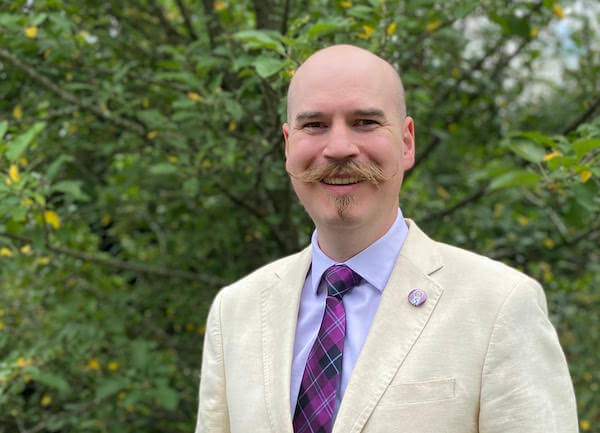Over the past decade, Yale SOM has introduced several innovative features to their application, including a behavioral assessment, a personal assessment, pre-interview questions, and behaviorally anchored recommender forms.
These elements have made the application more objective and more efficient, helping applicants and the admissions team focus on what matters most while boosting the predictive power of the application. SOM’s singular essay is best understood in this context.
Required Essay: Describe the biggest commitment you have ever made. (500 words max)
When this essay debuted in 2019, SOM’s long-serving admission leader, Bruce DelMonico, offered this valuable context:
The question evolved from a conversation with Professor of Organizational Behavior Amy Wrzesniewski, who noted, “Reading about future plans is helpful, but actions speak louder than words.” In your response, we are looking to learn about how you have approached a particular commitment, whether personal or professional, and the behaviors that support it. You should be less concerned about what we want to hear and instead focus on being honest with yourself in selecting and describing the commitment that has been most significant to you.
Believing that past behavior is the best predictor of future success, Yale poses a straightforward behavioral question. While most MBA essay prompts lend themselves to deductive responses – where you make a statement about who you are and then marshal evidence to support that claim – Yale asks applicants to take a more inductive approach. They want to see an objective record of what you’ve done, and if it’s presented clearly, they should be able to infer what moves you and what matters most in your life. The “why” is always important, but Yale wants you to focus more on the “how.”
TOP TIPS FOR TACKLING THE YALE SOM ESSAY QUESTION
1. Understand Yale SOM’s “bias toward action.”
DelMonico has often talked about Yale SOM’s “bias towards action,” and this shows up in the prompt: “actions speak louder than words.” They are looking for “behaviors that support” your stated commitment, and they implore applicants to “be honest with themselves.” Honesty is the key because the essay asks you to bring the receipts (see Tip #2). Yale is looking for something more objective and dispassionate than other schools. There are bound to be strong feelings, values, and motivations backing your actions, but Yale isn’t asking what moves you – they want to witness what you’ve done!
2. Ask yourself the tough questions.
If a stranger shadowed you for several years and had unfettered access to your life – spending patterns, reading habits, physical moves, contact with other people, emails, meals, etc. – but couldn’t read your thoughts or know your feelings, what might they infer about what matters to you? What could they conclude based on how you invest your most precious resources: time, attention, social capital, emotional energy? When faced with a high-stakes decision, which path did they see you choose? When forced to make a thousand everyday decisions, what patterns would they have observed? Running this thought experiment in a dispassionate way can be hard – we are constantly rewriting stories about ourselves in illogical, inconsistent, very human ways – but it gets at the spirit of the question. The trick here is to link up your honesty and your confidence and let them reinforce one another. That’s no easy task in this business where everyone is stretching to project a vision of their best self, but that just makes authenticity all the more precious.
3. Get to the point.
We have all made lots of commitments, but there can be only one. Yale welcomes personal or professional angles, but whatever you choose, state it clearly in the first few sentences of your essay. You have only 500 words to work with, so there’s not a lot of room for context or compelling sentimental hooks, but that’s okay. Some of our deepest, most enduring commitments have an emotional core; if you dig deep enough to find something genuine you should be close to something compelling, even as you’re focused on actions, choices, investments, sacrifices, results. Use the straightforward nature of the prompt to inspire your writing style. Keep the focus on yourself as the main character and keep your sentences concrete, specific, and action oriented. Do that, and you’re likely to end up crafting some pretty good prose along the way!
Finally, resist any temptation to bend your response to align with the SOM mission or pick a particular commitment that you think will resonate with the school’s values. If your response links up naturally with the school’s strengths, that’s great, but don’t force it. Really focus on you and your behavioral patterns; stick close to the question and close to how you regularly impact the world around you.
ANSWERING THE YALE SOM CAREER GOALS QUESTIONS
Like many schools, Yale SOM wants to hear about your post-MBA interests, but the structure and focus of the question is slightly different. SOM gives applicants a list of 64 industries and you are required to select two: one that best aligns with your short-term career goals and one that best aligns with your long-term career goals. Then, Yale poses this short answer essay-style follow up:
How did you arrive at these career interests? How have you or how will you position yourself to pursue them? (250 word max)
Note that while the initial question is ostensibly forward-looking, the prompt asks you to look back. How did you arrive? How have you positioned yourself? The door is open to talking about how you might grow and change during your MBA experience – How will you position yourself? – but true to form, SOM is leaning into the idea that your past is the best predictor of your future. One possible way to get the past-future balance right in your response to start with your MBA elevator pitch (i.e., what you have done). Make that about 75% of your answer, then expand it by imagining what you’d want your final pitch to sound like on graduation day (i.e., what you will do). This could include club involvement, an internship, study abroad, coursework, etc. While this question is focused on your professional trajectory, you can add some personal interest and color via your arrival story. You can write about your motivations, influences, and inspirations – whatever excites you about a particular industry.
A central challenge in answering questions about future goals is to connect practical, concrete achievable, aims with an overall career vision that’s inspiring and impactful. It’s a balancing act. On the one hand, schools seek students who think big, are visionary and ambitious. (This is especially true for SOM given its interest in equipping alumni to address some of the most pressing, complex problems in the world.) On the other hand, schools – with an eye toward their career office – want to know that new students will be able to position themselves for good internship opportunities and future employability. Internship recruiting ramps up quickly in the first semester, so schools want first-years who can hit the ground running, find their lane quickly, and compete for positions that often lead to full-time offers.
Overall, schools seek individuals with a lot of potential who can present a coherent narrative that persuasively links their past experiences and reasons for pursuing an MBA with their future career plans. Understanding the differences between short- and long-term goals and how they link up will enhance your capacity to articulate a compelling case to admissions committees. As Fortuna’s Heidi Hillis writes in her excellent article on short term vs. long term MBA career goals, “Finding a theme and story around the decisions you’ve made so far will help with the process for developing an eye-catching career vision.”
View our MBA Admissions Masterclass featuring Yale SOM, Berkeley Haas, and UCLA Anderson for more Yale SOM application insights.
Want more advice on applying to Yale SOM?
View my related post, Yale SOM Pre-Interview Questions & Quote: Insider Advice.
 Zachary White is an Fortuna Admissions expert coach and former Yale SOM Assistant Director of Admissions. For a candid assessment of your chances of admission success at a top MBA program, sign up for a free consultation.
Zachary White is an Fortuna Admissions expert coach and former Yale SOM Assistant Director of Admissions. For a candid assessment of your chances of admission success at a top MBA program, sign up for a free consultation.
The post Yale SOM MBA Essay for 2021-2022: Tips & Strategy first appeared on Fortuna.

